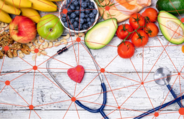Soy Sourcing & Deforestation Action Plan
Current Situation
Forests serve as important reservoirs of carbon, and the clearance of primary forest cover increases greenhouse gas emissions. Forests also provide the habitat for half of all known plant and animal species, regulate local rainfall patterns and provide livelihoods for millions of people in rural communities.
Rising demand for soy has led to the conversion of natural ecosystem into plantations, which can result in social and environmental damage. The conversion of natural ecosystem is especially a problem in tropical areas, where much of it is illegal, and valuable natural areas are being lost.
As part of the Sustainable in a Generation Plan, Mars set an ambitious science-based Climate Action target to reduce our carbon footprint by 27% by 2025, while advancing respect for human rights and seeking to improve the working lives of 1 million people in our supply chains. To tackle our greenhouse gas emissions, we are working to improve how food is produced throughout our extended supply chain. We estimate that four-fifths of our full value chain carbon footprint comes from agricultural and land use change emissions associated with the ingredients we source to make products. Therefore, we are working to transform key supply chains by partnering with suppliers, farmers and others to stop deforestation and produce ingredients more efficiently for a lower carbon footprint.
This Soy Action Plan articulates the approach Mars is taking to implement our Global Deforestation and Land Use Change Position in our soy supply chains. It builds on our previous commitment, “By the end of 2017, 100% of the soy we purchase in Brazil will be certified and sourced from operations that are in compliance with the Brazil Forest Code.”
We worked toward this commitment by:
- Mapping 100% of our material soy products sourced from Brazil to the processing site.
- Tracing 100% of our material soy products sourced from other countries to the processing site.
- Ensuring 100% of the annual soy volume purchased in Brazil is either ProTerra or Roundtable on Responsible Soy certified or covered through direct RTRS credits.
And expands the scope to new areas, biomes and vegetation where soy production drives deforestation and converts natural ecosystems. We completed an initial risk assessment of our global soy supply chain and determined that countries with the highest risk of soy-driven deforestation are in Latin America.
Our Ambition & Supply Chain Solutions
By 2025, our aim is to stop deforestation and conversion of natural ecosystems in Mars supply chains for our soy ingredients in Latin America — a region with high conversion hotspots. This goal applies to the material portion of soy supply to Mars, which includes soy ingredients we source for pet food. Our ambition is to build transparent and verified soy supply chains that give us confidence we are preserving forests and natural ecosystems.
We expect all direct soy ingredient suppliers to implement the requirements from this action plan across their supply chains to ensure the soybean farms they source from are compliant. These suppliers should begin with implementing the action plan in the Mars supply chain, and ultimately move toward implementing it across all their suppliers. Mars is working first to stop deforestation in our supply chain, then engage suppliers to implement these practices throughout their business, for all the ingredients they buy and sell.
Mars is a member of the Consumer Goods Forum and supports its Sustainable Soy Sourcing Guidelines. Mars is also a member of the Roundtable on Responsible Soy, a civil society organization that promotes responsible soy-production, processing and trading, and a signatory of the Statement of Support of the Cerrado Manifesto, that recognizes the need to prevent further conversion of the Cerrado Biome in Brazil. We work with these groups to further advance our ambition.
In Latin America we source soy ingredients from Brazil and Argentina. In Brazil, we are implementing this Action Plan by building on our previous work to stop deforestation associated with our soy supply chain in the Amazon Biome. In Argentina we will begin a deforestation risk assessment in 2020.
Our Expectations
To achieve our ambition by 2025, we expect our direct soy suppliers in Latin America to meet the following requirements:
- Ensure that all soy ingredients are from soy farms compliant with pertinent legislation, including but not limited to:
- Soy from Brazil must be produced on farms that comply with the Forest Code, are not named on the Brazilian Institute of Environment and Renewable Resources list of embargoes, are not on the Ministry of Economy’s Forced Labor Dirty List and are not overlapping within legally protected areas (including Conservation Units and Indigenous Territories).
- Soy products from Argentina must be produced on farms that comply with The Native Forest Law 26.331 and Agricultural Employment Law 26.727.
- Ensure that Soy from Brazil is only sourced from suppliers that are compliant with the Amazon Soy Moratorium with a deforestation cutoff date of July 2008 for Brazilian Amazon.
- Maintain a deforestation cutoff date of June 2016 for other regions in Latin America, in line with RTRS. This includes forests (including high carbon stock forests), and other types of natural ecosystem (including savannahs and other areas of high conservation value) which can be monitored.
- Demonstrate that:
- There is respect for rights of affected communities to give or withhold their free, prior and informed consent for planting soy on land they own legally, communally or by custom.
- Disputes over land rights are resolved through a balanced and transparent resolution process, that is expected to include traders’ grievance mechanisms.
- Engage in the Next Generation Supplier program, our focused approach to support our direct suppliers to uphold the Mars Supplier Code of Conduct. This sets our clear expectations in the areas of child labor, forced labor, discrimination, compensation and benefits, working hours, freedom of association and the right to collective bargaining, health and safety, the environment and ethical business practices.
Our Actions
In addition to what we expect from our direct soy suppliers, Mars is taking the following actions to address deforestation:
- Working to improve transparency in our supply chains by expecting our direct suppliers to drive full transparency and traceability, with an initial focus on conversion hotspot areas.
- Verifying all direct suppliers’ compliance with this Action Plan through third-party verification of the trader or crusher purchase control system. Verification frequency might be determined by suppliers’ risks to policy breaches.
- Further investigating the existence and potential integration of fully segregated soy supply chains in Brazil and Argentina.
- Communicating and collaborating with officials from government, industry and NGOs to remain informed on best practices and drive collective efforts to preserve forests. Specifically, we plan to support government efforts to implement and enforce forest and natural ecosystem protection policies.
Indirect Soy
In 2020 we will review our indirect soy — soy used as feed in animal farming — footprint and study soy feed flows, to better understand the deforestation risks posed in those indirect supply chains. Based upon findings we will define our approach to indirect soy supply.
What’s Next
We will refresh our direct supplier and sourcing region information annually and disclose our direct suppliers of soy ingredients, including the total volume procured and its origins. And, as our supply chain transparency improves over time, we plan to share further information accordingly.
We will disclose progress on the implementation of this action plan on an annual basis.
Where we believe no further progress is possible, we reserve rights of refusal and to end supplier relationships that do not meet our expectations in a defined timeframe.
Finally, as we implement our commitment, we will review our approach. This review holds us, and our suppliers, to account, as well as enables us to share lessons and continue to ensure our approach remains appropriate and effective.



